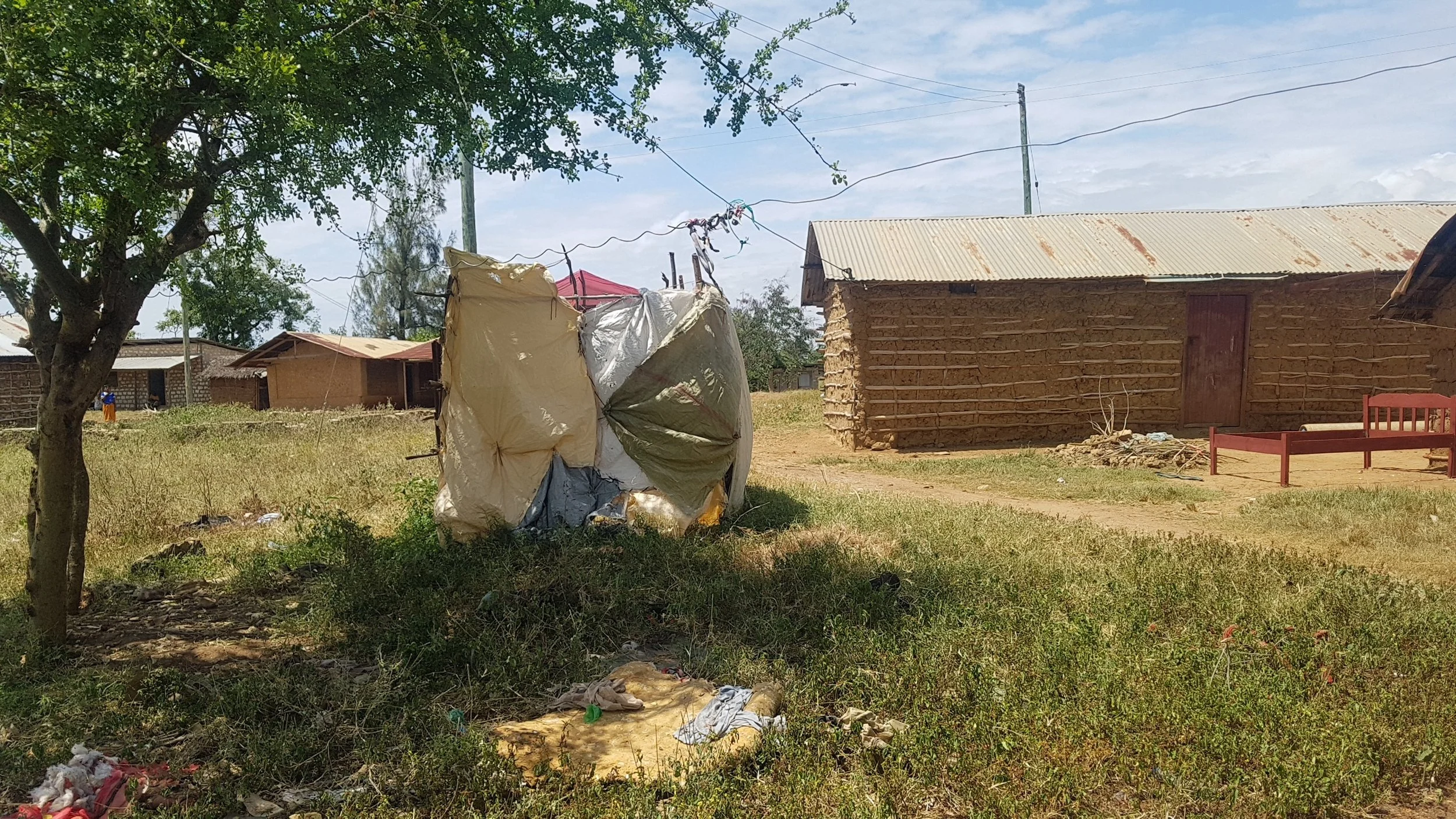Transforming Communities Through WASH Projects
Images can communicate impact much more powerfully than words.
Our team in Kenya recently shared with us the before and after of a completed eco-loo project, built for one of the smallholder communities near Mombasa supported by Haller. This is one of over 50 eco-loos developed with the support of our team, with every project providing a transformative impact on health outcomes and sanitation.
The bathroom in place prior to the development of the eco-loo.
The completed eco-loo project.
Before Haller’s intervention, the community toilets were roughly built of sheets and tarpaulins. There was no established waste management system, and no security for people using the washroom. With the help of the Haller team in Kenya, this system has been replaced by an eco-loo designed to improve sanitation alongside environmental benefits.
Every aspect of the project has been developed with economy and ecology in mind, improving livelihoods and environmental outcomes.
The guttering of the roof connects to a large water butt, capturing rainfall which is stored to be used on crops during dry seasons. As droughts have become more frequent and intense in Kenya, any tactics to capture and store water have become even more important. In 2022 almost 95% of water pans across Kenya dried up, with people forced to trek between 8.6 and 17.6 kilometres to collect water. In addition, crops such as bananas thrive when exposed to grey water produced by eco-loos.
Through a combination of direct sunlight and moringa seeds, water is purified for handwashing to prevent the spread of waterborne diseases. Moringa seeds are made up of a protein that causes bacteria to clump together and die (in a process called coagulation), as well as having anti-bacterial properties due to the acetone they contain. The eco-loo also offers privacy and safety for women, which is especially important during menstruation.
Globally, unsafe water, sanitation, and hygiene (WASH) are responsible for the deaths of around 400,000 children under the age of five every year. An estimated 3.6 billion people (half the world’s population) still lack safe sanitation at home. In Kenya, of the 17,100 annual cases of infant mortality, 90% are connected to unsafe water.
Official development assistance for water and sanitation decreased by 5.6% between 2017 and 2020 even as systems came under further pressure, which makes interventions such as this even more important.
If you want to learn more about our work with communities in Kenya, you can follow us on social media.
None of our work would be possible without the continued support of the wider Haller community. To support our projects in Kenya and around the world, you can donate here.


